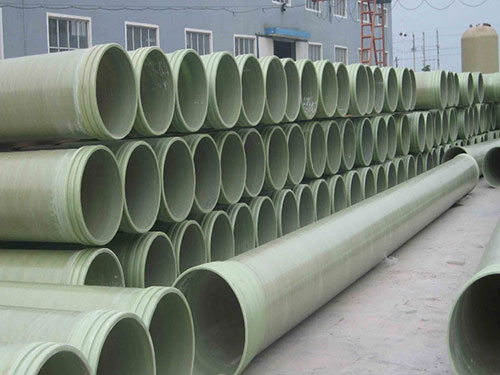This text presents FRP pipes, made with resin as the matrix and glass fibers as the reinforcing material. They have many advantages and features, and can be widely used in multiple industries. It mentions the international standards implemented, such
FRP pipes are made by special processes with resin as the matrix and glass fibers as the reinforcing material. This type of pipe has advantages such as corrosion resistance, leak prevention, and good heat insulation performance.
It features light weight, high strength, maintenance-free, long service life, strong designability, low fluid resistance, convenient installation, and low overall cost.
It can be widely applied in industries such as petroleum, chemical engineering, pharmaceuticals, electricity, papermaking, urban water supply and drainage, factory sewage treatment, seawater desalination, gas transmission, mining, etc., and is an ideal pipe for transporting liquids and gases.
What international standards are implemented for FRP pipes to ensure product quality?

The international standards for FRP pipes are as follows:
1.FRP pipes and pipe fittings: HG/t 21633-1991;
2."Design Specification for FRP/Polyvinyl Chloride Composite Pipes": Hg 20520-92;
3.Fiber Wound Reinforced Thermosetting Resin Pressure Pipes: JC 552-94;
4.FRP Sand-filled Pipes: GB/t 21238-2007;
5.FRP Jacking Pipes: GB/t 21492-2008;
6.Structural Design Specification for Buried FRP Sand-filled Pipes in Water Supply and Drainage Engineering: CECS190: 2005.
Relevant test method standards for FRP pipes:
1.Short-term Hydraulic Pressure Failure Test Method for Fiber Reinforced Thermosetting Plastic Pipes: GB/T 5349;
2.Axial Tensile Performance Test Method for Fiber Reinforced Thermosetting Plastic Pipes: GB/T 5349;
3.Parallel Plate External Load Performance Test Method for Fiber Reinforced Thermosetting Plastic Pipes: GB/T 5349.
TEL: +86 13931827012
Email: admin@aldfrp.com
Address:NO.1056 South Yingbin Street, Jizhou District, Hengshui City,Hebei 053200 China